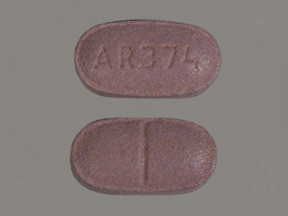COLCHICINE - ORAL
PHONETIC PRONUNCIATION: (KOL-chi-seen)
COMMON BRAND NAME(S): Colcrys
GENERIC NAME(S): colchicine
Uses
USES: This medication is used to prevent or treat gout attacks (flares). Usually gout symptoms develop suddenly and involve only one or a few joints. The big toe, knee, or ankle joints are most often affected. Gout is caused by too much uric acid in the blood. When uric acid levels in the blood are too high, the uric acid may form hard crystals in your joints. Colchicine works by decreasing swelling and lessening the build up of uric acid crystals that cause pain in the affected joint(s). This medication is also used to prevent attacks of pain in the abdomen, chest, or joints caused by a certain inherited disease (familial Mediterranean fever). It is thought to work by decreasing your body's production of a certain protein (amyloid A) that builds up in people with familial Mediterranean fever. Colchicine is not a pain medication and should not be used to relieve other causes of pain.
How to use COLCHICINE - ORAL
HOW TO USE: Read the Medication Guide provided by your pharmacist before you start taking colchicine and each time you get a refill. If you have any questions regarding the information, ask your doctor or pharmacist. Take this medication by mouth with or without food, exactly as directed by your doctor. Dosing recommendations vary widely and may be different from the following recommendations. Taking more than the recommended dose may not increase this drug's effectiveness and may increase your risk for side effects. Ask your doctor or pharmacist for more details. If you are taking this medication to treat a gout attack, carefully follow the directions given by your doctor. This medication works best if you take it at the first sign of an attack. The recommended dose is 1.2 milligrams at the first sign of an attack, followed by 0.6 milligrams one hour later. The maximum recommended dose is 1.8 milligrams taken over a 1-hour period. Ask your doctor ahead of time about how soon you can repeat treatment with this medication if you have another gout attack. If you are taking this medication to prevent gout attacks or for pericarditis, ask your doctor about the dose and schedule you should follow. Carefully follow your doctor's directions. If you are taking this medication to prevent attacks of pain caused by familial Mediterranean fever, the usual dose is 1.2 to 2.4 milligrams daily. The total dose may be taken once daily or divided into two doses a day. Your doctor may need to adjust your dose to control your symptoms or if you have side effects. The dosage is based on your medical condition, other drugs/foods you may be taking, and response to treatment. To reduce your risk for serious side effects, do not increase your dose, take it more frequently, or take it for a longer time than directed by your doctor. Serious side effects may occur even at usual prescribed doses. If your doctor directs you to take colchicine regularly, use it regularly to get the most benefit from it. To help you remember, take it at the same time(s) each day. Avoid eating grapefruit or drinking grapefruit juice while being treated with this medication unless your doctor instructs you otherwise. Grapefruit can increase the amount of certain medications in your bloodstream. Consult your doctor or pharmacist for more details. If you are taking this medication to treat symptoms due to familial Mediterranean fever, tell your doctor if your condition does not improve or if it worsens.
Side Effects
Precautions
Interactions
Overdose
Images
Reviews
Disclaimer
IMPORTANT: HOW TO USE THIS INFORMATION: This is a summary and does NOT have all possible information about this product. This information does not assure that this product is safe, effective, or appropriate for you. This information is not individual medical advice and does not substitute for the advice of your health care professional. Always ask your health care professional for complete information about this product and your specific health needs.

No Reviews Yet